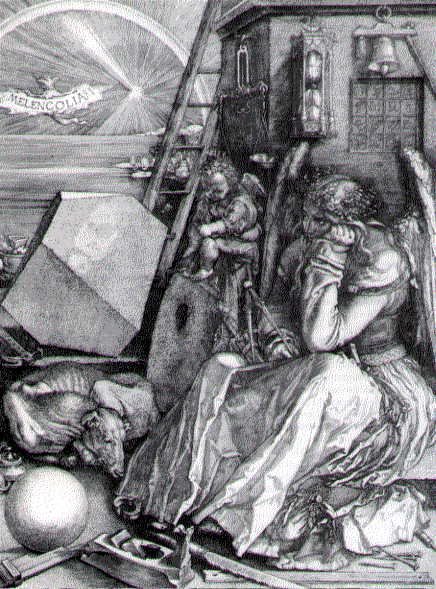
Good day ladies and gents...I, Boswell, am here to offer you some wonderful advice, especially for those of you that suffer as I do from the English Malady, the spleen, the vapours, melancholy, etc...
.
ON MARRIAGE:
That Marriage should ever by respected by the wise and virtuous, is plain from the consideration, that it is the mode of continuing the human race in a regular and becoming manner. Man loves his species. He feels a pleasure in the contemplation of that multitude of beings of whom he is one; and he cannot but have a regard for an orderly institution to which he himself owes his education, and without which he is sensible that society would be a scene of gross and discordant confusion. To consider one's self as a part of a general system, and to think of the good of the whole may have been carried to an absurd excess by the stoicks of old, and by some philosophers of modern times who have assimilated their notions to those of that lofty sect. Yet it must be allowed, that much of our happiness arises from viewing our existence in that light. Voltair in his Candide has unquestionably shown, by practical impressions stronger than any effects from induction, that a series of severe distresses will be felt by an individual not withstanding all the boasted arguments of optimism. This however even Voltaire with all his wit could not but know, and indeed I believe his benevolence made him know it well, that the enjoyment of man is far from being merely selfish, but is in a considerable degree sympathetick. It extends itself to his wife and children, to his friends, to his countrymen...A man therefore may be induced to marry from the principle that he shall by doing so, have a better connexion with society, and add more good to the general system than by any other means... (19)
ON DEATH:
A Hypochondriack fancies himself at different times suffering death in all the various ways in which it has been observed; and thus he dies many times before his death. I myself have been frequently terrified, and dismally afflicted in this way; nor can I yet secure my mind against it at gloomy season of dejection.When one has found relief by any remedy, however accidental, it is humane to mention it to others. I am therefore to inform my hypochondriack brethren, who may have the same horrible imaginings of Death which I have had, that I have found sensible consolation from a very pretty passage which I chanced to read several years ago in the Critical Review for January 1770. In giving an account of Dr. Stennett's Discourses on personal Religion, a striking and expressive description of the horrours of dying is quoted from that book, upon which the Reviewer has the following reflexion. "It is certain indeed that the fear of Death is one of the strongest passions implanted in human nature, and wisely ordained by Providence as a sort of guard to retain mankind within their appointed station. Yet, possibly, there are not those agonies in dying which are usually supposed, many things appear more formidable in imagination than they are in reality. When we are in perfect health and vivacity, we have a horrible idea of sickness and confinement; but when we are actually sick and confined...The soul forgets her anxiety, and sinks into repose..."...There are few more beautiful pieces of writing than this. (20)
ON DRINKING:
I am, indeed, anxious to defend myself against the imputation of being an advocate for Drunkenness, and therefore I would carefully prevent my readers from giving credit to any of the supposed symptoms of virtue which have been ascribed to it. Drinking is a pleasure no doubt, but it is a dangerous pleasure, and what should make us most afraid of it is, that an indulgence in excess of drinking grows upon a man, and gradually incapacitates him for resuming the excercise of his best faculties...I think the use to be made of this circumstance is to resolve that drinking should be only the pleasure of old age. Let our youth and manhood be employed in the various duties of active life and better enjoyments, and when old age requires a consolatory cup we may take it. (21)
AND FOR THE GRAND FINALE, HYPOCHONDRIA:
"Why is it that all men who have excelled in philosophy, in politicks, in poetry, or in the arts, have been subject to melancholy?" -Aristotle
Aristotle, whose profound investigation and variety of knowledge I always consider with wonder and reverence, appears to have admitted, the opinion that melancholy is the concomitant of distinguished genius...We Hypochondriacks may be glad to accept of this compliment from so great a master of human nature, and to console ourselves in the hour of gloomy distress, by thinking that our sufferings mark our superiority...Melancholy, or Hypochondria, like the fever or gout, or any other disease, is incident to all sorts of men, from the wisest to the most foolish...It is not every man who can be exquisitely miserable, any more than exquisitely happy. But the distemper indubitably operates, though in different degrees, upon every species or constitution...There is not the least doubt that Hypochondria, as well as fire, may be checked, if diligence, sufficiently early and sufficiently vigorous, be used...But when a man cannot overcome them by himself, he must call in the aid of firemen or friends. Cheerful companions, by playing their pleasantry upon the mind, will soon dissipate the dreary clouds... (22)
I hope these words of advice provide some relief, thank you and cheer up.
J.B. Esquire